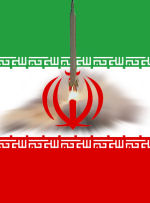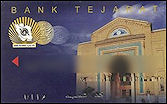 So, this afternoon, I was on the phone with a client who had a question about the Cuba sanctions enforced by the Office of Foreign Assets Control (“OFAC”). As I often do in these situations, I went to the OFAC site to pull up the Cuban sanctions regulations themselves and, poof, they were gone. The hyperlink on this page to the Cuban Assets Control Regulations no longer leads to a PDF version of those regulations — as one might suspect or, at least, hope — but to the eCFR page for Title 31. You are not even taken to Part 500, which is where all of the OFAC regulations can be found. Four clicks later, assuming you know and can find where to click and after waiting for the interminably slow eCFR server to respond, you finally get to part 515 which is where the Cuba regulations are located.
So, this afternoon, I was on the phone with a client who had a question about the Cuba sanctions enforced by the Office of Foreign Assets Control (“OFAC”). As I often do in these situations, I went to the OFAC site to pull up the Cuban sanctions regulations themselves and, poof, they were gone. The hyperlink on this page to the Cuban Assets Control Regulations no longer leads to a PDF version of those regulations — as one might suspect or, at least, hope — but to the eCFR page for Title 31. You are not even taken to Part 500, which is where all of the OFAC regulations can be found. Four clicks later, assuming you know and can find where to click and after waiting for the interminably slow eCFR server to respond, you finally get to part 515 which is where the Cuba regulations are located.
The larger point here is that an agency in the business of imposing significant fines on people for not following its regulations should not impose on the at-risk public needless obstacles to finding and consulting those regulations and avoiding these fines.
Some readers might remember that there was a bit of a ruckus when the Bureau of Industry and Security migrated the Export Administration Regulations over to the eCFR. As a result, BIS returned to a more user-friendly version of the EAR on its website. Let OFAC know what you think, and maybe OFAC will do the same

 Posted by
Posted by  Category:
Category: 

 Take a gander at this headline of a
Take a gander at this headline of a  The Office of Foreign Assets Control (“OFAC”) was feeling left out as the one branch of Treasury not tangled up in the foreclosure crisis, so it decided to
The Office of Foreign Assets Control (“OFAC”) was feeling left out as the one branch of Treasury not tangled up in the foreclosure crisis, so it decided to  The White House issued an
The White House issued an  Yesterday, the U.S. Treasury Department’s Office of Foreign Assets Control (“OFAC”)
Yesterday, the U.S. Treasury Department’s Office of Foreign Assets Control (“OFAC”) 

